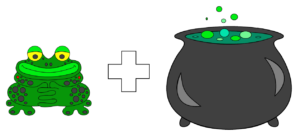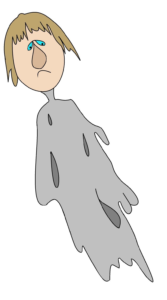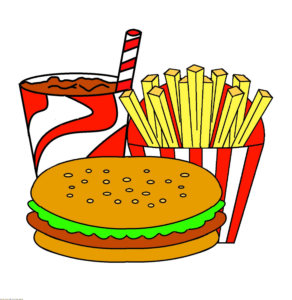How important is change to you?
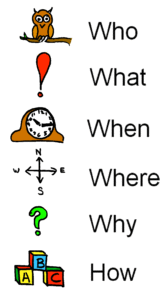 In order to change you have to prepare your environment to be conducive to change.
In order to change you have to prepare your environment to be conducive to change.
Environment is Important:
- Yours
- Theirs
- But mostly yours
What happens when we decide to change something about ourselves.
Our brains revolt.
Change is Constant
Not all change is great or world shattering.
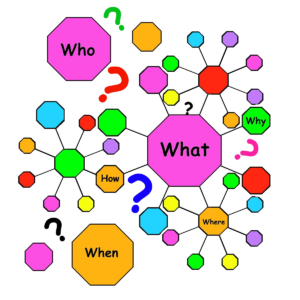 Change is constant and can be as simple as an updated attitude based upon an updated piece of information.
Change is constant and can be as simple as an updated attitude based upon an updated piece of information.
Within the human biological matrix, every individual is composed with unique combinations of personality traits.
Continuously develop new brain cells and connections throughout a lifetime of experiences, education and memories.
Hierarchy of Human Needs
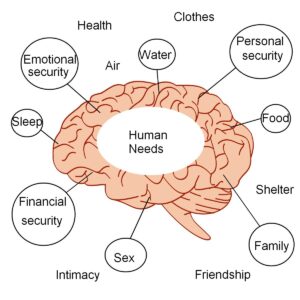 We all share the same human matrix and hierarchy of needs:
We all share the same human matrix and hierarchy of needs:
- Air
- Water
- Food
- Sex
- Sleep
- Clothes
- Shelter
- Health
- Personal security
- Emotional security
- Financial security
- Family
- Friendship
- Intimacy
It is important to understand your own human hierarchy of needs. Why?
Because it’s no longer enough to simply step away and try to ignore a habit, eliminate bad influences or avoid toxic situations.
Thanks to the Internet, your stern resolve to change yourself is an active challenge to others intent upon keeping you
- Predictable
- Manageable
- Open to suggestion…
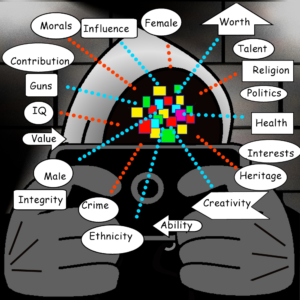 Personalization of Online Advertising
Personalization of Online Advertising
Before 1970’s most ads intended to solve an embarrassing problem or to promise happiness:
- the heartbreak of psoriasis
- the social shunning of “halitosis” (coined by Listerine)
- The Pause That Refreshes
Until the 1970s, ads that used the word “deserve” was often meant in a negative light. (He got what he deserved)
- McDonalds introduced the word in a positive light for the first time in 1971 to sell more hamburgers. “You Deserve a Break Today”
- L’Oreal ran their ad campaign 1973, “Because I’m Worth It” to sell Preference hair coloring.
Use of the word “deserve” as a positive caught on and today “deserve” is the most popular and overused word in advertising and political rhetoric.
- “you deserve…XYZ (whatever I’m selling)”
Which begs the Q.
How could the advertisers/politicians possibly know what a reader or listener deserves?
By gathering data points for…
Direct To Consumer Advertising
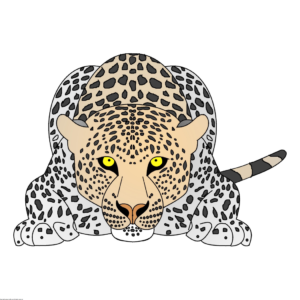 Turns out, the Internet is that cuddly kitten you adopted that grew 50 times larger than expected and now looks at you as if you were dinner.
Turns out, the Internet is that cuddly kitten you adopted that grew 50 times larger than expected and now looks at you as if you were dinner.
Humanity has conspired to create a predator that understands you better than you understand yourself and there’s no limit in sight to its power.
The biggest impact on the history of advertising is the internet. Modern Technology has enabled the ability of companies to collect billions of data points on the users of technology.
But, thanks to a 2019 Vermont law which required companies that buy and sell third-party personal data to register with the Secretary of State
At least 121 data brokers are currently operating in the U.S.
Data points are traded, bought and sold to marketers, political parties, etc. for the purpose of Direct Marketing to the Customer.
- Social media advertising across the world is projected to exceed $8.5 billion this year.
- Facebook alone collects 98 personal data points on its 2.2 billion users with a total of 215.6 billion data points at present.
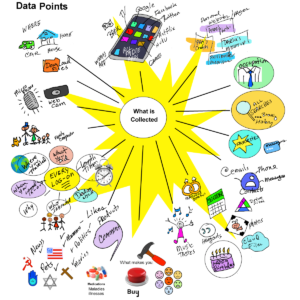 What is a Data Point?
What is a Data Point?
- – Your Location
- – Apps used and websites created
- – Searches and bookmarks
- – Emails, contacts, and calendar data
- – Google Drive files
- – Google hangout sessions
- – YouTube videos
- – Photos on phone
- – Music listened to
- – Every message sent or received
- – Interests – your likes & comments
- – Stickers you’ve sent
- – Every time you log in
- – Where you logged
- – What time time logged in/off
- – From what device
- – Every app connected account
- – Access to your webcam any time
- – Access to microphone any time
- – Phone contacts,
- – Call history,
- – Downloaded files,
- – Games you play
- – Browsing history
- – Birthdays,
- – Marital status,
- – Family composition,
- – Occupation,
- – Type of car owned
- – and more…..
MSNBC’s Figliuzzi: "Al Qaeda people [came] together because they simply got caught in an algorithm on Facebook where they were watching the same beheading videos and violent sermons and the FB algorithm said, ‘You guys are watching the same stuff, would you like to be friends'?" pic.twitter.com/3U8j8gen0C
— Tom Elliott (@tomselliott) October 4, 2021
“The Internet”
Knows when you are sleeping,
- it knows when you’re awake.
- Doesn’t care whether you’ve been bad or good
…Just keep buying.
As predators go, the Internet/Modern Technology is nothing like any predator experienced by human brains in evolutionary history.
Brain’s Watchdog
Fight, flight or freeze impulses evolved as survival traits to keep us safe from danger.
How FFF works:
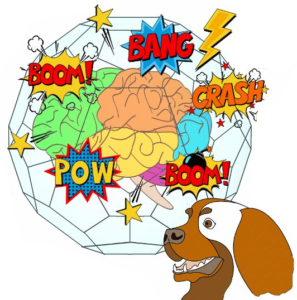 The amygdala, (lizard brain) the brain’s watchdog, senses danger – real or imagined – and sends out warning signals
The amygdala, (lizard brain) the brain’s watchdog, senses danger – real or imagined – and sends out warning signals
These impulse reactions come from deep within our personal perceptions of ourselves, our perceived beliefs and biases.
It is estimated, humans can respond to information in less than a quarter of a millisecond.
During encounters with sudden causes for concern or uncertainty about the future, human nature takes one of three approaches:
- Fight – triggered when we feel more powerful than the threat
- Flight – triggered when we feel less powerful than the threat
- Freeze – occurs when brain disassociates itself from the physical to deny eminent pain – physical or mental
Evolutionary-wise, our brains are still operating like they were back in the 1400’s…before technology happened, dodging bullets, arrows and spears reacting with Flight, Fight or Freeze responses.
Auto-Pilot Short-Term/Fast Thinking
Except we can’t kill or escape ourselves away from this predator. It understands you more than you understand yourself and has the ability to sway or shape who you perceive of yourself.
FFF = Short-Term, 2-Dimensional thinking
- Yes or No
- Right or Wrong
- Left or Right
Short-Term thinking is easiest, allows for quick action, immediate responses.
Change or adaptation is constant but happens in subtle ways we don’t seem to notice. (boiling frogs)
Our brains constantly create memories and stereotypes as we mature but unless we’re challenged on something we operate just fine on auto pilot.
And that’s just fine with Direct to Customer Advertisers because it pays well to target and tickle that impulsive 2-D thinking.
What’s Your Tickle Zone.
Study your own personality ticks and quirks. What is your personality like during your moods? What does it take to set you off?
For Example
What is your personality like when you are in:
Which emotions (positive, negative) are attached to that trigger that sends your so-called “will power” running off like a damsel in distress straight into the awaiting arms of the…
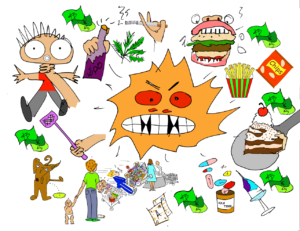 Last Nerve Zone (AKA Chaos)
Last Nerve Zone (AKA Chaos)
Tired, on the way home from work, spouse, boss, kids making you crazy?
When we become aware of our impulse reactions, we can more easily recognize when they are triggered.
Awareness allows us to take a step back to objectively analyze a situation.
Now…
Do you really deserve a hamburger right now?

